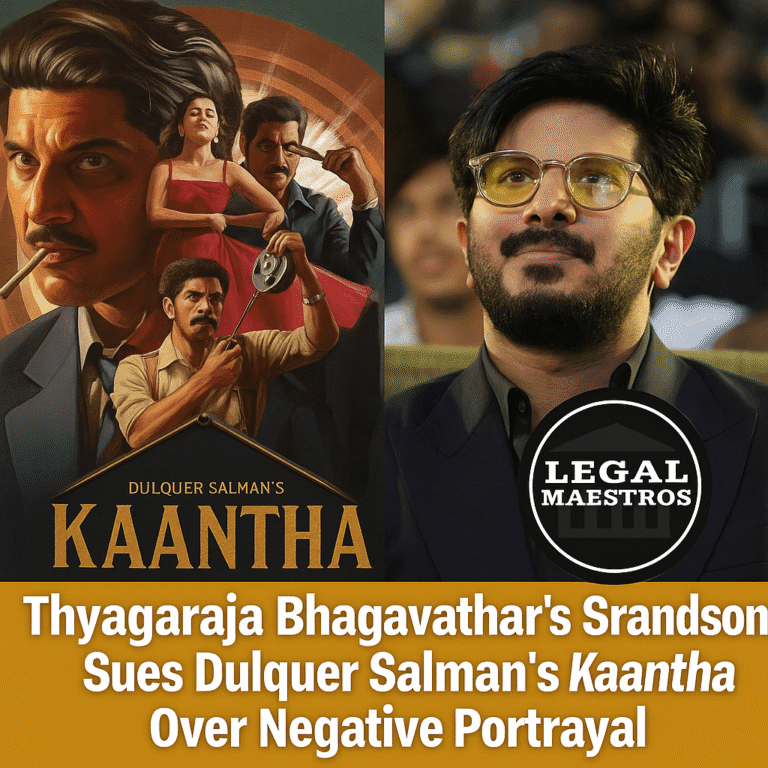
Remembering Justice GC Mittal: How His Landmark Judgments as Delhi High Court Chief Justice Shaped Civil and Constitutional Law
Remembering Justice G.C. Mittal’s Enduring Legacy
After serving as the Chief Justice of the Delhi High Court for many years, Justice Gokal Chand Mittal passed away on June 5, 2025. He was 92 years old. An extraordinary odyssey through the justice system that stretched more than four decades came to a conclusion with his passing.
The amount of work that Justice Mittal left behind continues to have an impact on civil and constitutional jurisprudence in India. Justice Mittal is known for his clarity of thinking and his steadfast dedication to fair adjudication on the court.
Early Life and Judicial Ascent
In October of 1956, Justice Mittal became an advocate in the Punjab and Haryana High Court. He was born on March 4, 1933, and he received his law degree from Punjab University just before to his enrollment.
For any queries or to publish an article or post or advertisement on our platform, do call at +91 6377460764 or email us at contact@legalmaestros.com.
His extensive legal expertise earned him recognition, and he focused the most of his work in Chandigarh on the civil side of the law.
He was named Chief Justice of the Delhi High Court on August 5, 1991, a position he maintained until his retirement on March 4, 1995.
Beginning in February 1979, he was elevated to the position of Additional Judge of the Punjab and Haryana High Court. In June 1982, he was confirmed as a permanent judge.
For any queries or to publish an article or post or advertisement on our platform, do call at +91 6377460764 or email us at contact@legalmaestros.com.
For More Updates & Regular notes, Join Our WhatsApp group (https://chat.whatsapp.com/DkucckgAEJbCtXwXr2yIt0) and Telegram Group ( https://t.me/legalmaestroeducators )
Defining Fairness in Family Law
Jasmeet Kaur v. Gurjeet Singh Talwar (2014) is one of the cases in which Justice Mittal investigated the duties of a father towards his daughter’s marriage expenditures. This case is considered to be one of the most quoted civil law decisions that Justice Mittal has previously issued.
He ruled that a parent is obligated to provide fair arrangements in line with his standing, and he finally awarded Rs. 37 lakhs for the expenses associated with the marriage. He did this by writing in language that was easy to understand.
For any queries or to publish an article or post or advertisement on our platform, do call at +91 6377460764 or email us at contact@legalmaestros.com.
This verdict reaffirmed his conviction that the legal system ought to be able to accommodate current social conditions and uphold familial responsibilities with sensitivity.
Strengthening Third-Party Insurance Rights
In the case of Oriental Insurance Co. Ltd. v. Rakesh Kumar (2012), Justice Mittal discussed the issue of insurer liability in relation to claims involving motor vehicle accidents.
Through his clarification, he made it clear that insurers cannot avoid liability for third-party reimbursement, even in the event that the policyholder intentionally violated the terms of the policy.
For any queries or to publish an article or post or advertisement on our platform, do call at +91 6377460764 or email us at contact@legalmaestros.com.
As a result of his ruling, consumer protection principles were strengthened, and victims of road accidents were guaranteed to get the appropriate compensation without being punished for policy technicalities. This was accomplished by upholding the insurer’s commitment to protect third-party victims.
Under the Domestic Violence Act, advancing protections for victims of domestic violence
The constitutional provisions for women were also significantly impacted by Justice Mittal’s efforts. His interpretation of the word “shared household” in accordance with Section 2(s) of the Protection of Women from Domestic Violence Act, 2005 was presented in the case of Hima Chugh v. Pritam Ashok Sadaphule (2013).
The protection, he decided, was only applicable to locations where the person who had been wronged really resided as a member of the family, and it did not extend to trips that were made on a more casual basis.
For any queries or to publish an article or post or advertisement on our platform, do call at +91 6377460764 or email us at contact@legalmaestros.com.
This verdict struck a balance between the statutory protections and the preventative objective of the Act. It did this by defining the continuation of a domestic partnership that is based on cohabitation.
Advancing Protections under the Domestic Violence Act
In the case of Ramesh @ Bori v. State (2011), Justice Mittal’s compassion to disadvantaged petitioners proved to be particularly impressive.
He ordered the release of the individual and asked the Government of the National Capital Territory of Delhi to pay Rs. 5 lakhs in compensation after conducting an investigation into a case in which a juvenile was held as an adult for more than five years despite the fact that the law only allows for three years of detention for juveniles.
For any queries or to publish an article or post or advertisement on our platform, do call at +91 6377460764 or email us at contact@legalmaestros.com.
Within the framework of the criminal justice system, this judgment highlighted his dedication to the process of procedural fairness as well as the constitutional rights of minors.
Upholding Juvenile Justice Guarantees
In the case of Tunda Ram Dagar v. State (2011), Justice Mittal addressed the issue of whether or not testimony should be included in cases when a witness passed away before to being subjected to cross-examination.
He came to the conclusion that such evidence should continue to be allowed, notwithstanding the fact that the weight that should be given to it must be determined by the specifics of each individual case.
For any queries or to publish an article or post or advertisement on our platform, do call at +91 6377460764 or email us at contact@legalmaestros.com.
He had a balanced respect for both procedural and substantive justice, which is shown in this nuanced approach, which safeguarded the rights of witnesses and victims while maintaining strict standards for analyzing evidence.
Clarifying Evidence Law
Justice Mittal was a reformer in the administration of the courtside, in addition to his decisions. He advocated for the simplification of processes and the enhancement of the rate at which cases were resolved, as he was of the opinion that the rule of law required that justice be administered in a timely manner.
After he retired, he continued to educate younger attorneys and contribute to legal scholarship. He also pushed both the Bar and the Bench to maintain civility and discipline in the courtroom.
For any queries or to publish an article or post or advertisement on our platform, do call at +91 6377460764 or email us at contact@legalmaestros.com.
According to he became a recognized figure in academic and judicial circles due to his sense of humility and his desire for teaching.
A Lasting Impact on Indian Jurisprudence
During his time as Chief Justice of the Delhi High Court, Justice G.C. Mittal delivered a number of precedent-setting decisions in the areas of civil law, constitutional law, and practice.
The fact that he insisted on argumentation that was straightforward and easy to grasp contributed to the democratization of legal discourse, making it possible for both litigants and practitioners to comprehend and implement the law.
For any queries or to publish an article or post or advertisement on our platform, do call at +91 6377460764 or email us at contact@legalmaestros.com.
However, the principles that he outlined continue to guide courts in the delivery of justice that is fair and equitable, even as India navigates the ever-changing social and legal issues. The judgments that bore his signature and the numerous lives that were improved as a result of his choices that were made with fairness will be his legacy.


![JOB POST: Junior Associate at ASM Law Chambers, Jaipur [Freshers]](https://legalmaestros.com/wp-content/uploads/2025/11/Gemini_Generated_Image_8wrxer8wrxer8wrx-768x708.png)

